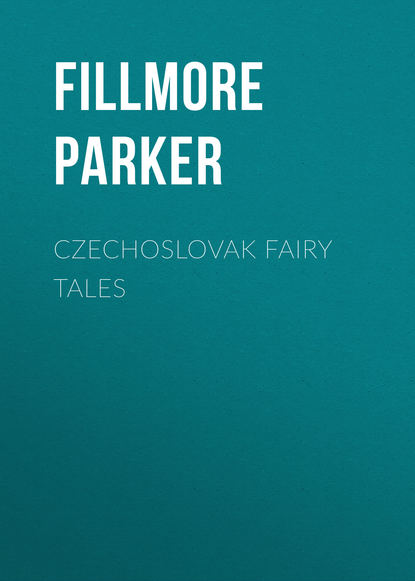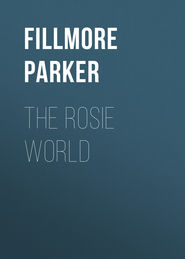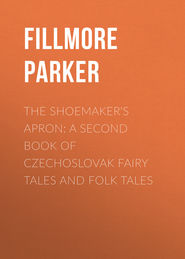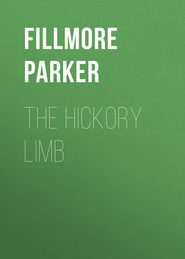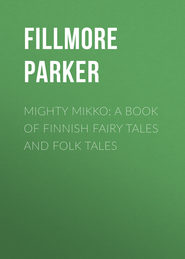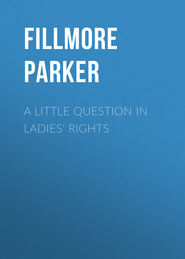По всем вопросам обращайтесь на: info@litportal.ru
(©) 2003-2024.
✖
Czechoslovak Fairy Tales
Настройки чтения
Размер шрифта
Высота строк
Поля
Betushka reproached herself bitterly: “She told me not to look inside until I got home, but I didn’t obey.”
“It’s lucky you didn’t empty the whole basket,” her mother said.
The next morning she herself went to look for the handful of leaves that Betushka had thrown away. She found them still lying in the road but they were only birch leaves.
But the riches which Betushka brought home were enough. Her mother bought a farm with fields and cattle. Betushka had pretty clothes and no longer had to pasture goats.
But no matter what she did, no matter how cheerful and happy she was, still nothing ever again gave her quite so much pleasure as the dance with the wood maiden. She often went to the birch wood in the hope of seeing the maiden again. But she never did.
THE GOLDEN SPINNING WHEEL
THE STORY OF KING DOBROMIL AND THE GOOD DOBRUNKA
THE GOLDEN SPINNING WHEEL
THERE was once a poor woman who had twin daughters. The girls were exactly alike in face and feature but utterly different in disposition. Dobrunka was kind, industrious, obedient, and everything a good girl ought to be. Zloboha, her sister, was spiteful, disobedient, lazy, and proud. In fact, she had just about as many faults as a person could have. Yet strange to say the mother loved Zloboha much better and made everything easy for her.
They lived in a cottage a few miles from town. The cottage stood by itself in a little clearing in the woods. Hardly any one ever passed it except occasionally some man who had lost his way in the woods.The mother put her favorite, Zloboha, out to service so that she might learn city ways, but she kept Dobrunka at home to do the housework and take care of the garden. Dobrunka always began the day by feeding the goats, then she prepared the breakfast, swept the kitchen, and when everything else was done she sat down at her spinning wheel and spun.She seldom benefited from the yarn she spun so carefully, for her mother always sold it in town and spent the money on clothes for Zloboha. Yet Dobrunka loved her mother although she never had a kind word or a kind look from her the whole day long. She always obeyed her mother instantly and without a frown and no one ever heard her complain about all the work she had to do.
They lived in a cottage a few miles from town. The cottage stood by itself in a little clearing in the woods. Hardly any one ever passed it except occasionally some man who had lost his way in the woods.
The mother put her favorite, Zloboha, out to service so that she might learn city ways, but she kept Dobrunka at home to do the housework and take care of the garden. Dobrunka always began the day by feeding the goats, then she prepared the breakfast, swept the kitchen, and when everything else was done she sat down at her spinning wheel and spun.
She seldom benefited from the yarn she spun so carefully, for her mother always sold it in town and spent the money on clothes for Zloboha. Yet Dobrunka loved her mother although she never had a kind word or a kind look from her the whole day long. She always obeyed her mother instantly and without a frown and no one ever heard her complain about all the work she had to do.
One day when her mother was going to town Dobrunka went part of the way with her, carrying her yarn wrapped up in a kerchief.
“Now see that you’re not lazy while I’m away,” her mother said, crossly.
“You know, mother, you never have to nag at me. Today when I finish the housework, I’ll spin so industriously that you’ll be more than satisfied when you get home.”
She handed her yarn to her mother and went back to the cottage. Then when she had put the kitchen in order, she sat down to her wheel and began to spin. Dobrunka had a pretty voice, as pretty as any of the song-birds in the forest, and always when she was alone she sang. So today as she sat spinning she sang all the songs she knew, one after the other.
Suddenly she heard outside the trample of a horse. “Some one is coming,” she thought to herself, “someone who has lost his way in the woods. I’ll go see.”
She got up from her wheel and peeped out through the small window. A young man was just dismounting from a spirited horse.
“Oh,” thought Dobrunka to herself, “what a handsome young lord he is! How well his leather coat fits him! How well his cap with its white feather looks on his black hair! Ah, he is tying his horse and is coming in. I must slip back to my spinning.”
The next moment the young man opened the door and stepped into the kitchen. All this happened a long time ago, you see, when there were no locks or bars on the doors, and there didn’t have to be because nothing was ever stolen.
“Good day to you, my girl,” the young man said to Dobrunka.
“Good day, sir,” Dobrunka answered. “What is it, sir, you want?”
“Will you please get me a little water. I’m very thirsty.”
“Certainly,” Dobrunka said. “Won’t you sit down while I’m getting it?”
She ran off, got the pitcher, rinsed it out, and drew some fresh water from the well.
“I wish I could give you something better, sir.”
“Nothing could taste better than this,” he said, handing her back the empty pitcher. “See, I have taken it all.”
Dobrunka put the pitcher away and the young man, while her back was turned, slipped a leather bag, full of money, into the bed.
“I thank you for the drink,” he said, as he rose to go. “I’ll come again tomorrow if you’ll let me.”
“Come if you want to,” Dobrunka said, modestly.
He took her hand, held it a moment, then leaped upon his horse and galloped off.
Dobrunka sat down again to her wheel and tried to work, but her mind wandered. The image of the young man kept rising before her eyes and I have to confess that, for an expert spinner, she broke her thread pretty often.
Her mother came home in the evening full of praises of Zloboha, who, she said, was growing prettier day by day. Everybody in town admired her and she was fast learning city ways and city manners. It was Zloboha this and Zloboha that for hours.
Finally the old woman remarked: “They say there was a great hunting party out today. Did you hear anything of it?”
“Oh, yes,” Dobrunka said. “I forgot to tell you that a young huntsman stopped here to ask for a drink. He was handsomely dressed in leather. You know once when I was in town with you we saw a whole company of men in leather coats with white feathers in their caps. No doubt this young man belonged to the hunting party. When he had his drink, he jumped on his horse and rode off.”
Dobrunka forgot to mention that he had taken her hand in parting and promised to come back next day.
When Dobrunka was preparing the bed for the night, the bag of money fell out. In great surprise she picked it up and handed it to her mother.
The old woman looked at her sharply.
“Dobrunka, who gave you all this money?”
“Nobody gave it to me, mother. Perhaps the huntsman slipped it into the bed. I don’t know where else it could have come from.”
The old woman emptied the bag on the table. They were all gold pieces.
“Good heavens, so much!” she murmured in amazement. “He must be a very rich young lord! Perhaps he saw how poor we were and thought to do a kind deed. May God grant him happiness!”
She gathered the money together and hid it in the chest.
Usually when Dobrunka went to bed after her day’s work she fell asleep at once, but tonight she lay awake thinking of the handsome young rider. When she did at last fall asleep it was to dream of him. He was a powerful young lord, it seemed to her, in her dream. He lived in a great palace and she, Dobrunka, was his wife. She thought that they were giving a fine banquet to which all the nobles in the land had been invited. She and her husband arose from the table and went together into another room. He was about to put his arms about her and embrace her when suddenly a black cat sprang between them and buried its claws in Dobrunka’s breast. Her heart’s blood spurted out and stained her white dress. She cried out in fright and pain and the cry awoke her.
“What a strange dream,” she thought to herself. “I wonder what it means. It began so beautifully but the cruel cat spoiled it all. I fear it bodes something ill.”
In the morning when she got up, she was still thinking of it.
On other mornings it didn’t take Dobrunka long to dress but this morning she was very slow. She shook out her fresh skirt again and again. She had the greatest trouble in putting on her bodice just right. She spent much time on her hair, into which she plaited the red ribbon that she usually kept for holidays. When at last she was dressed and ready to go about her household duties she looked very fresh and sweet.
As midday came, she found it hard to sit still at her wheel, but kept jumping up on any pretext whatever to run outdoors a moment to see if the young horseman was in sight.
At last she did see him at a distance and, oh, how she hurried back to her stool so that he would never think that she was watching for him.





